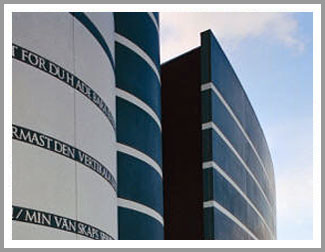Benefits
engineering | financial
Some of the advantages of using
Self-Consolidating Concrete are:
1. SCC can be placed at a faster rate with no mechanical vibration and less screeding, resulting in savings in placement costs.
2. Improved and more uniform architectural surface finish with little to no remedial surface work.
3. Ease of filling restricted sections and hard-to-reach areas. Opportunities to create structural
and architectural shapes and surface finishes not achievable with conventional concrete.
4. Improved consolidation around reinforcement and bond with reinforcement.
5. Improved pumpability.
6. Improved uniformity of in-place concrete by eliminating variable operator-related effort of
consolidation.
7. Labor savings.
8. Shorter construction periods and resulting cost savings.
9. Quicker concrete truck turn-around times, enabling the producer to service the project more efficiently.
10. Reduction or elimination of vibrator noise, potentially increasing construction
hours in urban areas.
11. Minimizes movement of ready mixed trucks and pumps during placement.
12. Increased jobsite safety by eliminating the need for consolidation.

Early stripping strengths
Productivity
Design flexibility
Pumpability
Overall production costs
Wear and tear on equipment
Discharge & placement time
Noise levels
Time-consuming cosmetic repairs


